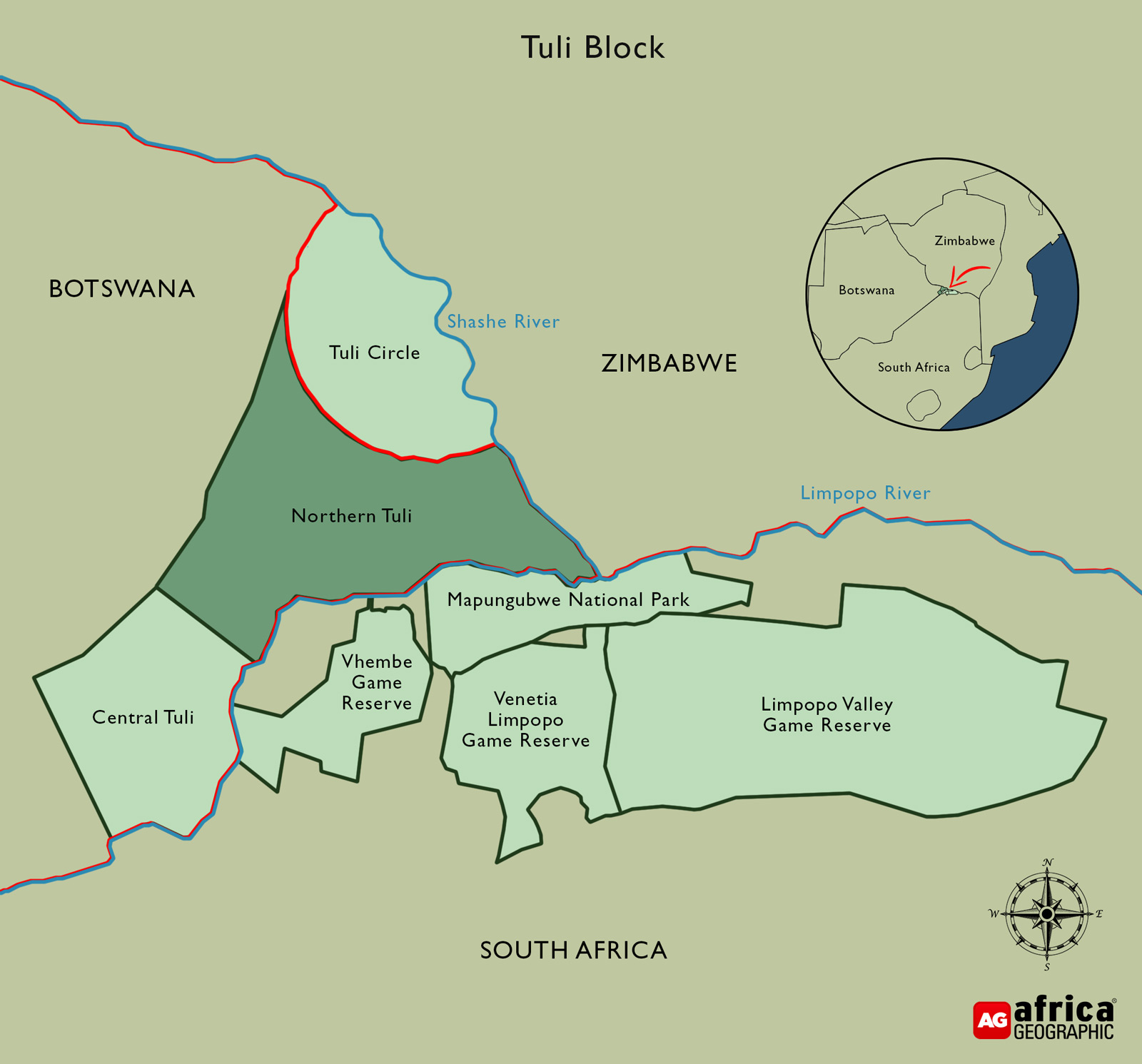Trust us to find you the rarest animals, the most spectacular wildlife events, the remotest landscapes and deeply meaningful cultural encounters!
Tuli Block in southeastern Botswana is an arid wilderness where huge baobabs dominate the landscape, herds of elephants and eland roam, and sightings of big cats are a common safari occurrence.
The most well-known portion of Tuli Block is the 720 km² (72,000 hectares) Northern Tuli Game Reserve - The Land of Giants. This is a combination of private game reserves, of which Mashatu Game Reserve is the largest and most popular.
Tuli Block is a cornerstone of the Greater Mapungubwe Transfrontier Conservation Area, which covers nearly 6,000 km² (600,000 hectares) and centres on the confluence of the Limpopo and Shashe Rivers. South Africa's Mapungubwe National Park is south of Tuli, across the Limpopo River international border, once home to the Iron Age Kingdom of Mapungubwe. To the north and east, Northern Tuli is contiguous with the Tuli Circle Safari Area in Zimbabwe.
Scroll past the safari packages below to learn EVERYTHING YOU NEED TO KNOW about Tuli Block.
The safaris below all visit Tuli Block
Everything you need to know about Tuli Block
Tuli Block offers the following safari highlights
Regular sightings of leopards, lions and cheetahs;
Large herds of elephants - the largest population on private land;
A dramatic arid landscape of open plains, rocky ridges with huge baobabs, and sandy riverbeds with towering mud banks or rocky cliffs;
Activities ranging from the usual game drives to night drives (not permitted in Botswana's national parks), an underground hide for photographers, guided nature walks, mountain biking and horse-back safaris; and
Visits to historical sites littered with reminders of a turbulent past – from ancient stone tools and San rock paintings to corroded ammunition casings left over from wars and the passage of hunters.

The climate in Tuli Block is the same as it is for most of Southern Africa - a cool, dry season from April to October and a hot, rainy season from November to March, with January to March having the highest rainfall. Temperatures range from 8-25 degrees Celsius during the cooler dry months, increasing in September and October and 20-35 degrees Celsius from November to March during the rains.
Wildlife viewings are best during the dry months when vegetation is thinner, and animals are forced to visit waterholes to drink - making their appearance predictable. Once the rains begin, many animals scatter in pursuit of fresh surface water and better browsing/grazing - and the predators follow - resulting in a drop-off in wildlife sightings.
Free safari planning
This will only take a moment and yet the information will enable us to begin handcrafting your safari of a lifetime. Or book a call with a safari expert.
Your personal details are protected as we abide by all international data privacy regulations. We only use this information to get in touch with you.
Are you ready for Tuli?
If none of the above packages to Tuli Block grab your imagination, we will craft that epic safari just for you

Why choose us to craft your safari?
Handcrafted experiential safaris since 1991.
Travel in Africa is about knowing when and where to go, and with whom. A few weeks too early/late or a few kilometres off course, and you could miss the greatest show on Earth. And wouldn’t that be a pity?

Trust & Safety
Guest payments go into a third-party TRUST ACCOUNT - protecting them in the unlikely event of a financial setback on our part. Also, we are members of SATSA who attest to our integrity, legal compliance and financial stability.
Make a difference
We donate a portion of the revenue from every safari sold to carefully selected conservation projects that make a significant difference at ground level.
YOUR safari choice does make a difference - thank you!